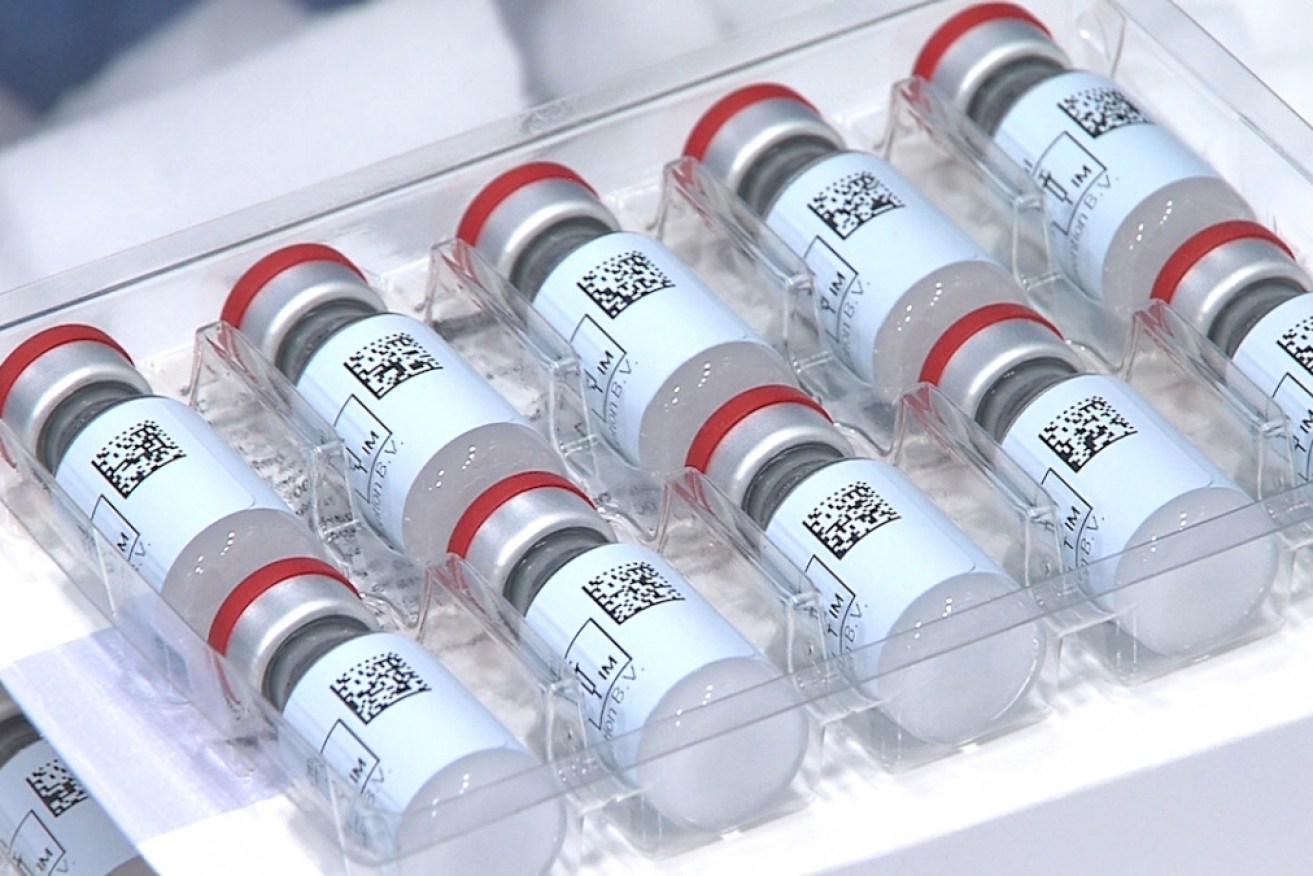J&J says vaccine 66 per cent effective

Johnson & Johnson's single-shot coronavirus vaccine is 66 per cent effective in protecting against COVID-19, the company says. Photo: PA
Johnson & Johnson says its single-dose vaccine was 66 per cent effective in preventing COVID-19 in a large trial against multiple variants across three continents.
In the trial of nearly 44,000 volunteers, the level of protection against moderate and severe COVID-19 varied from 72 per cent in the United States, to 66 per cent in Latin America and just 57 per cent in South Africa, from where a worrying variant has spread.
A high bar has been set by two authorised vaccines from Pfizer/BioNTech and Moderna, which were about 95 per cent effective in preventing symptomatic illness in pivotal trials when given in two doses.
Those trials, however, were conducted mainly in the United States and before new variants emerged.
J&J’s main goal was the prevention of moderate to severe COVID-19, and the vaccine was 85 per cent effective in stopping severe disease and preventing hospitalisation across all geographies and against multiple variants 28 days after immunisation.
That “will potentially protect hundreds of millions of people from serious and fatal outcomes of COVID-19”, Paul Stoffels, J&J’s chief scientific officer, said in a statement with the results, which were based on 468 symptomatic cases.
J&J plans to seek emergency use authorisation from the US Food and Drug Administration next week.
“Right now, any protection and additional vaccine is great. The South Africa strain is still uncommon in the US and obviously we would want to see higher efficacy, but the key is not only overall efficacy but specifically efficacy against severe disease, hospitalisation, and death,” Walid Gellad, a health policy associate professor at the University of Pittsburgh said of the results.
Unlike the Pfizer/BioNTech and Moderna vaccines, J&J’s does not require a second shot weeks after the first or need to be kept frozen, making it a strong candidate for use in parts of the world with weak transportation infrastructure and insufficient cold storage facilities.
Several studies have emerged this month showing a South African variant of the coronavirus has mutated in areas of the virus that are key targets of vaccines, reducing their efficacy.
Importantly, though, in a sub-study of 6000 volunteers in South Africa, Stoffels said, the J&J vaccine was 89 per cent effective at preventing severe disease. Ninety-five per cent of cases in the South Africa portion of the trial were infections with the South African variant.
J&J’s vaccine uses a common cold virus known as adenovirus type 26 to introduce coronavirus proteins into cells in the body and trigger an immune response.
The Pfizer/BioNTech and Moderna vaccines use a new technology called messenger RNA (mRNA) that requires it to be stored in a freezer.
-AAP








